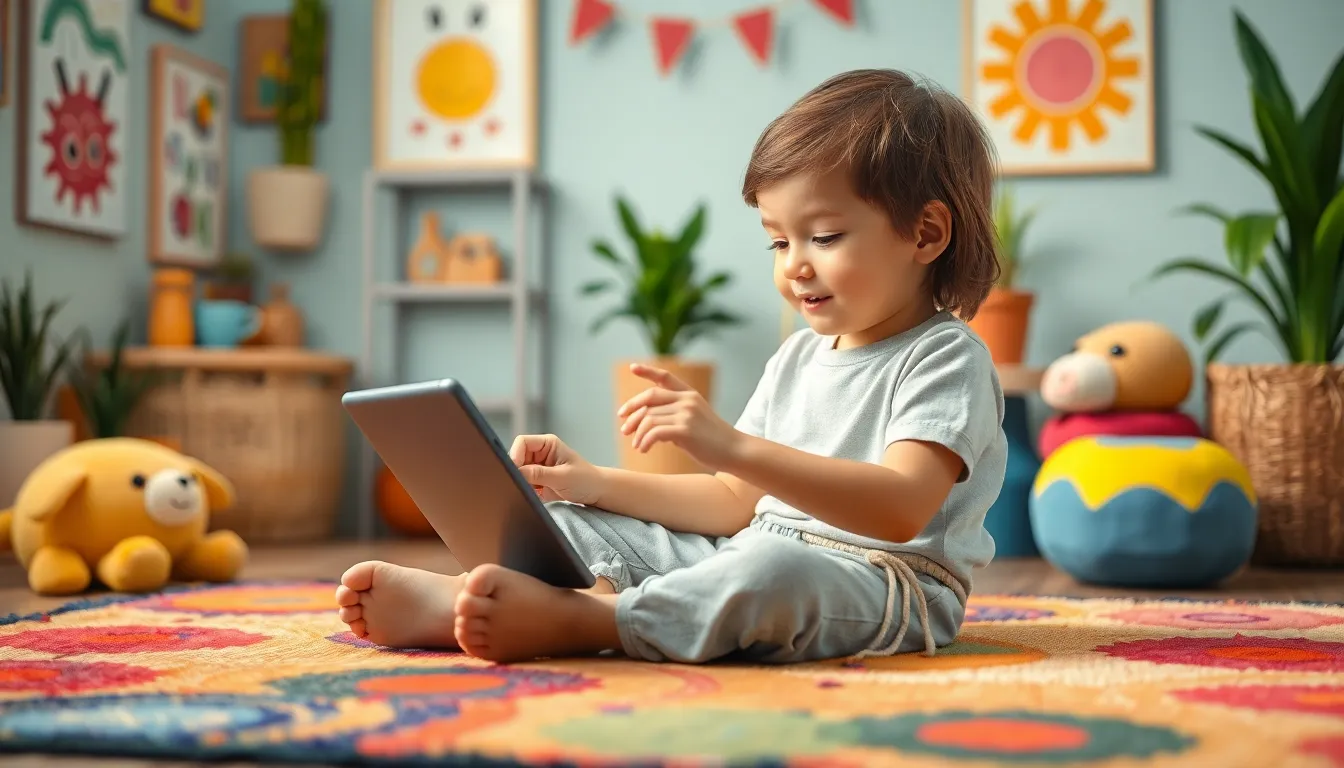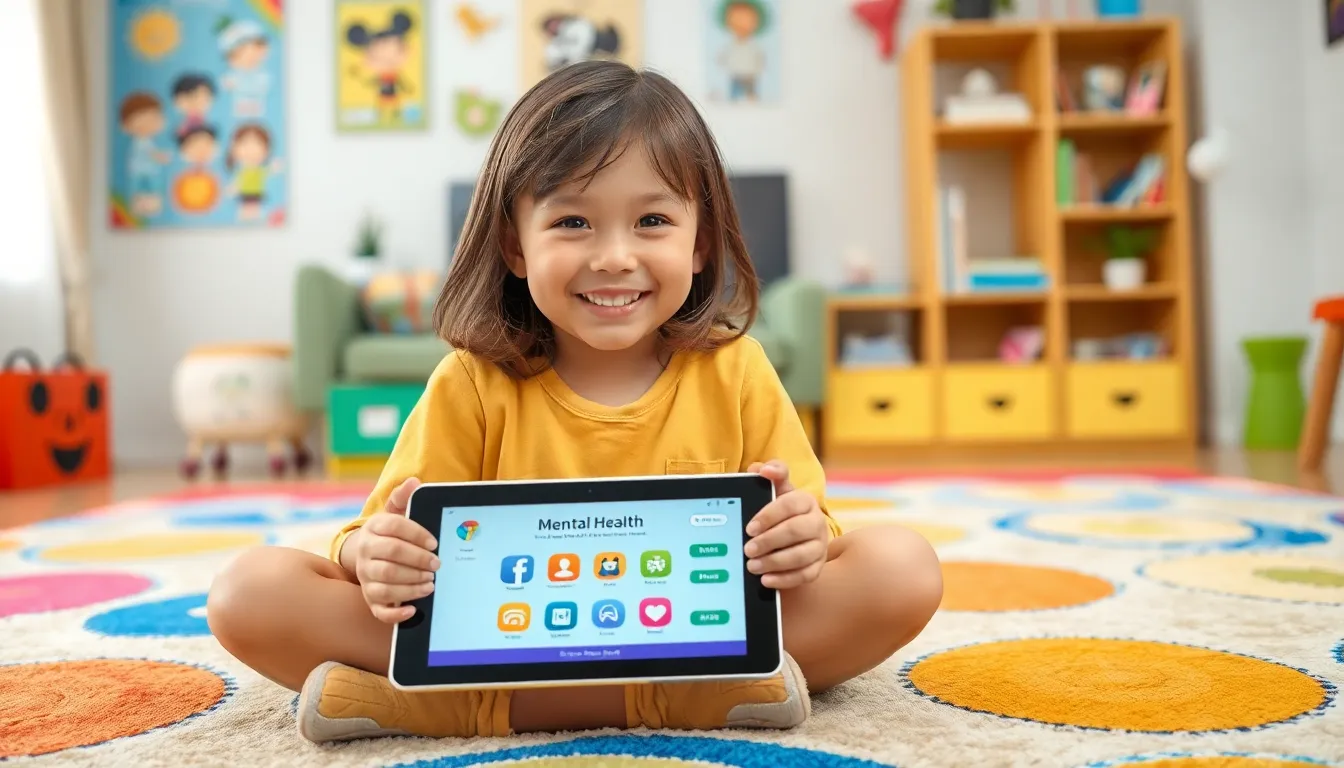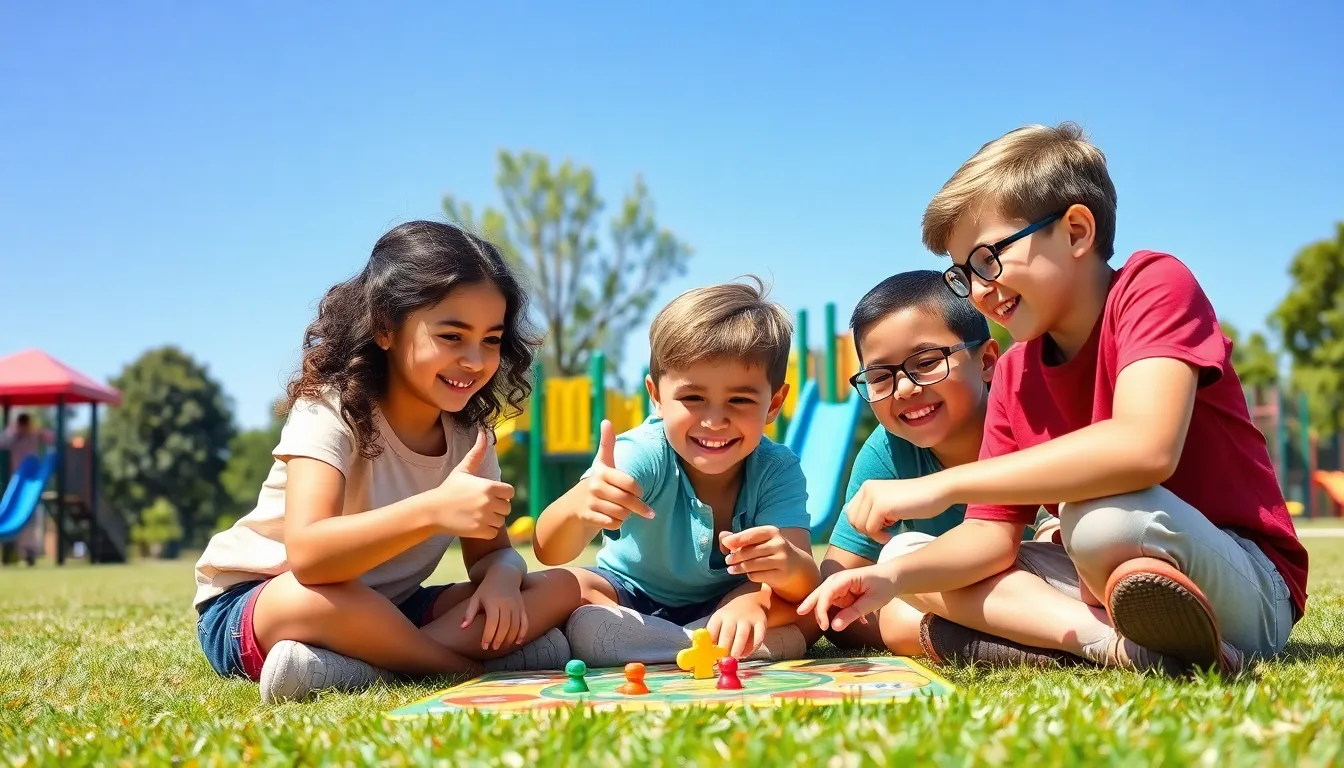In a world where kids juggle school, social lives, and the occasional existential crisis, mental health apps are stepping in like a superhero with a smartphone. These digital tools don’t just make therapy accessible; they turn mental wellness into a fun adventure. Imagine a game where kids learn to handle their feelings better than they handle their video game controllers.
With colorful designs and engaging activities, these apps help children navigate their emotions while keeping them entertained. They offer techniques that are as easy to grasp as the latest TikTok dance. So why not turn that screen time into something beneficial? After all, when it comes to nurturing young minds, a little tech-savvy support can go a long way in building resilience and happiness.
Table of Contents
ToggleOverview of Mental Health Apps for Kids
Mental health apps designed for kids focus on providing tools and resources that support emotional balance. These apps encourage engagement through various interactive features, such as games, quizzes, and mindfulness exercises. Many apps incorporate colorful designs that appeal to younger users, making mental health awareness more approachable.
Targeting specific age groups, these applications tailor content and activities for different developmental stages. Apps for younger children often include simple storytelling and animated characters to convey emotions effectively. Older kids may find guided journaling and mood tracking more beneficial, helping them express their feelings.
Various platforms offer features like breathing exercises, guided meditations, and stress-relief techniques. Such activities aim to teach coping strategies, which can foster resilience. By creating a supportive environment, these tools allow kids to navigate their emotions independently.
Additionally, research shows that children who use mental health apps exhibit improved emotional regulation. Parents and educators benefit from these resources, as they foster discussions about feelings and well-being. Accessible on smartphones and tablets, this technology allows for easy integration into daily routines.
As mental health apps gain popularity, developers continuously update their offerings based on user feedback. Innovating features to enhance user experience contributes to the overall effectiveness of these applications. By focusing on emotional wellness, mental health apps for kids aid in developing lifelong coping skills.
Benefits of Mental Health Apps


Mental health apps offer various advantages for children’s well-being, making emotional support accessible and engaging. Parents and educators recognize the importance of these digital tools.
Improved Emotional Regulation
Improved emotional regulation takes center stage with mental health apps. Children learn to identify and express their feelings effectively through interactive activities. Techniques such as mindfulness exercises empower kids to manage anxiety and stress. Benefits also manifest as they apply coping strategies during challenging situations. Research shows that kids using these apps exhibit better emotional control, enhancing their overall mental health. Engaging features foster a sense of achievement, promoting resilience in young users.
Increased Accessibility
Increased accessibility marks a significant advantage of mental health apps for kids. These apps provide immediate support, often available 24/7, making it easy for children to access tools whenever they need help. Many apps offer content tailored to various age groups, ensuring every child finds relevant resources. Additionally, parents appreciate the convenience of engaging their children in mental health practices without the barriers of traditional therapy. Cost-effective options cater to families looking for affordable solutions. Overall, mental health apps break down barriers to accessing emotional support, fostering ongoing well-being in children.
Types of Mental Health Apps for Kids
Mental health apps for kids come in various types, each designed to support emotional well-being through engaging activities and tools.
Mindfulness and Meditation Apps
Mindfulness and meditation apps guide children through relaxation techniques and breathing exercises. These apps often include short, playful sessions that capture kids’ attention while teaching them valuable skills. Features like animated visuals and calming sounds help create a serene environment. Daily practices often promote focus and decrease anxiety levels. Many users report feeling more grounded and centered after using these apps regularly. Examples include sessions tailored for different moods or situations, encouraging kids to pause and reflect.
Mood Tracking Apps
Mood tracking apps enable children to monitor their emotions over time. Kids can log feelings daily, identify patterns, and recognize triggers for their moods. In addition to visual charts, many apps provide descriptions for various emotions, enhancing emotional literacy. Tracking emotions helps facilitate open discussions between children and caregivers about their mental state. Timely notifications and reminders also prompt reflections, reinforcing self-awareness. Over time, mood tracking encourages kids to develop coping strategies tailored to their unique emotional journeys.
Therapy and Counseling Apps
Therapy and counseling apps connect children with licensed professionals for guidance and support. These platforms often feature options for video calls, messaging, or chat-based sessions. Accessibility is crucial, ensuring kids can reach out for help whenever necessary. Many apps also include interactive resources such as worksheets and exercises designed to reinforce therapeutic concepts. Regular engagement with these apps can lead to improved emotional regulation and coping skills. Confidentiality and safety measures provide peace of mind, making it easier for children to express themselves openly.
Choosing the Right App for Your Child
Selecting a mental health app for a child involves careful consideration of various factors. Parents should evaluate the app’s suitability based on their child’s unique needs and developmental stage.
Age Appropriateness
Age-appropriate apps engage children effectively. Younger children benefit from apps featuring storytelling and animated characters that resonate with their imagination. These design elements capture attention, making emotional learning enjoyable. On the other hand, older children and teens may find guided journaling and mood tracking more beneficial for addressing their evolving emotional landscape. Specific age categories exist in app descriptions, helping parents choose what aligns best with their child’s age group. Targeting the right audience enhances the likelihood of meaningful interaction and sustained use.
Features to Look For
Key features influence a child’s experience with mental health apps. Interactive games keep children motivated while teaching emotional regulation techniques. Mindfulness exercises should be easily accessible, guiding kids through relaxation methods and stress relief. Look for mood tracking options that allow children to monitor their feelings over time, fostering a sense of self-awareness. Engaging designs and intuitive navigation help maintain interest, promoting consistent usage. Additionally, parental controls provide peace of mind, ensuring a safe and supportive environment for kids to explore their mental health.




